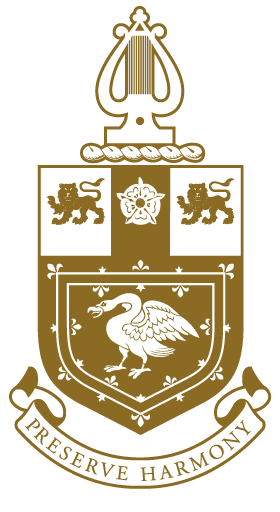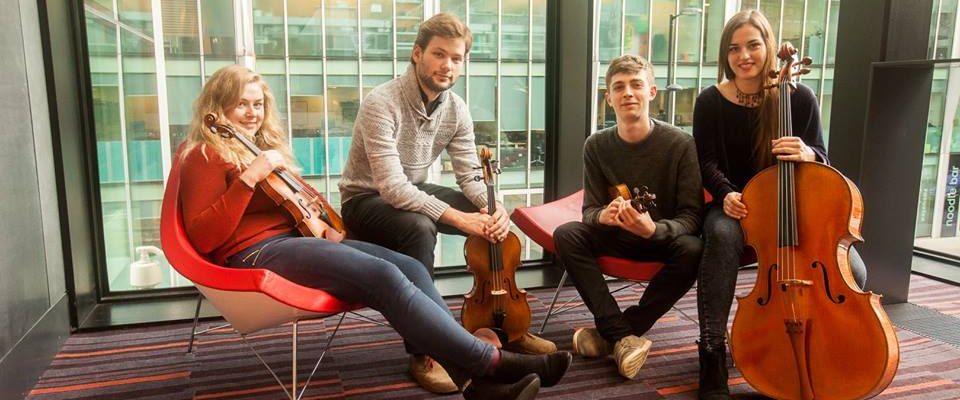Young Artist Interview: Yoanna Prodanova
Bulgarian, London-based cellist Yoanna Prodanova is a recipient of the Musicians’ Company 2017 Maisie Lewis Foundation Award, 2017 Sylva Gelber Award and 2016 Making Music Young Artist award. A founding member of the Barbican String Quartet, Yoanna regularly performs across the UK, Europe and Canada as both a soloist and chamber musician. Her list of performance venues includes Barbican Hall, Wigmore Hall, St Martin-in-the-Fields and LSO St Luke’s.
When did you start playing the cello?
I was 11 years old. After having had piano lessons for a few years, I decided that I didn’t want to be a pianist. I knew I wanted to be a musician, and it was the right moment to audition for the music school in Varna, but I had no instrument! So, my parents took me to a concert of soloists from the Varna National School of Arts where each of them played a movement of a concerto with the Varna Philharmonic on a different instrument. I heard the cello, and I said: that’s it!
Who or what is your biggest influence?
Every cello teacher I have learnt with has been an important influence on me. Someone who I value immensely is Mr E Lachapelle, my history of art teacher at the Conservatoire de Montreal who gave me my thirst for aesthetics and visual arts. My father playing the guitar at home also marked me significantly, as well as both my grandfathers who were artists in their own way. My influences change depending on what is happening in my life. Sometimes out of the blue something emerges which changes the perspective drastically. For me it could be a writer or specific book, an artist or unusual event. Something that I feel is significant is that I grew up by the sea which I think has shaped me into who I am in many ways, including as a musician.
How has your playing changed over the years?
I think my playing tends to go in different directions according to the current context and my state of mind. I am trying to look at it as a kind of flexibility of expression rather than a concrete vision. I think I have gained more suppleness in the last years from opening up to more music, listening more closely and working with many interesting musicians. Something that I have found recently is that I seem to relate much more to music than to the cello itself. I used to think that the main relationship was between the cello and I, which has now changed to between music/the composer and I, where the cello is the medium. It could have been any instrument! (but thankfully it is the cello!)
Chamber musician or soloist: which makes you happiest?
I don’t believe in a clear division between the two. I love performing concerti as much as sonatas, solo pieces as much as quartets. For me it is important to communicate with an orchestra in the same manner as in a piano trio for example. For string players particularly, with the exclusion of the few solo pieces we have, all music is essentially chamber music. Again, talking about the relationship to music: depending on what work you are playing, you have a different role, but what is important is that you relate to the essence (the music) and not the medium. Like in a play, sometimes the secondary characters are the more complex and colourful ones. When I go to the theatre I like to observe them closely, and I love it when the actors are truly invested in them and the context. They make the play come alive, and it is very similar to music.
What piece of music has had the most impact on you?
So many! The Elgar Cello Concerto is the first piece I heard on the cello, and the first piece I ever played with an orchestra. The three last Beethoven piano sonatas, some specific Schubert lieder, Mahler’s 9th, Beethoven’s 8th, Crumb’s Vox Balaenae, Shostakovich’s 13th, Dutilleux’s Tout un monde lointain also have special significance, along with every Pink Floyd album…
What piece of music have you discovered lately?
Bach’s St John Passion. I am very moved by it and glad that it has come to me at this stage of my life, and not earlier. Recently I finished reading Nikos Kazantzakis’ Last Temptation of Christ which gave me a more detailed understanding of the subject which I lacked before. Coming from a non-religious background I’ve felt distant from religious music and art for a long time. Kazantzakis’ impression of the story of Christ is very profound and his philosophy has had a direct impact on my listening to the Passions.
What would be on your desert island playlist? (three pieces)
This question is bound to have a different answer every day; I don’t think I could commit to a definite answer! But if I had to leave today, I would say Bach’s chorale preludes for organ for extra drama, Beethoven for sanity and some bossa nova for the mood.
Do you have any other passions other than cello?
Nature!
What’s the best thing anyone’s said about your playing?
A good friend of mine told me that I sound like a singer. I found it very special as she is one of the most expressive mezzos I’ve heard. It feels like we might be looking for a similar sound!
Tell us about your cello and why it’s special
At the moment I am playing a cello two years younger than me made by the French luthier Frank Ravatin. This cello won a gold medal at the Strad International Competition in Manchester which is one of the most prestigious international luthier competitions. It is kindly on loan to me from the Canimex Foundation in Quebec. While living in Montreal I met the bow maker Francois Malo, whose bows I already knew and like very much, and last year I discovered one of his newest ones, a copy of a Peccatte. I fell in love with it and was able to purchase it with the help of the Wolfson Foundation in London. Little did I know that Mr Ravatin and Malo know each other well! In fact, Ravatin made the St-Florent-le-Vieil cello I am playing on for Malo, who, a cellist himself, used to play it before giving it to the Canimex Foundation. Some friendships are so beautiful!
You can find out more about Yoanna Prodanova at yoannaprodanova.com.





